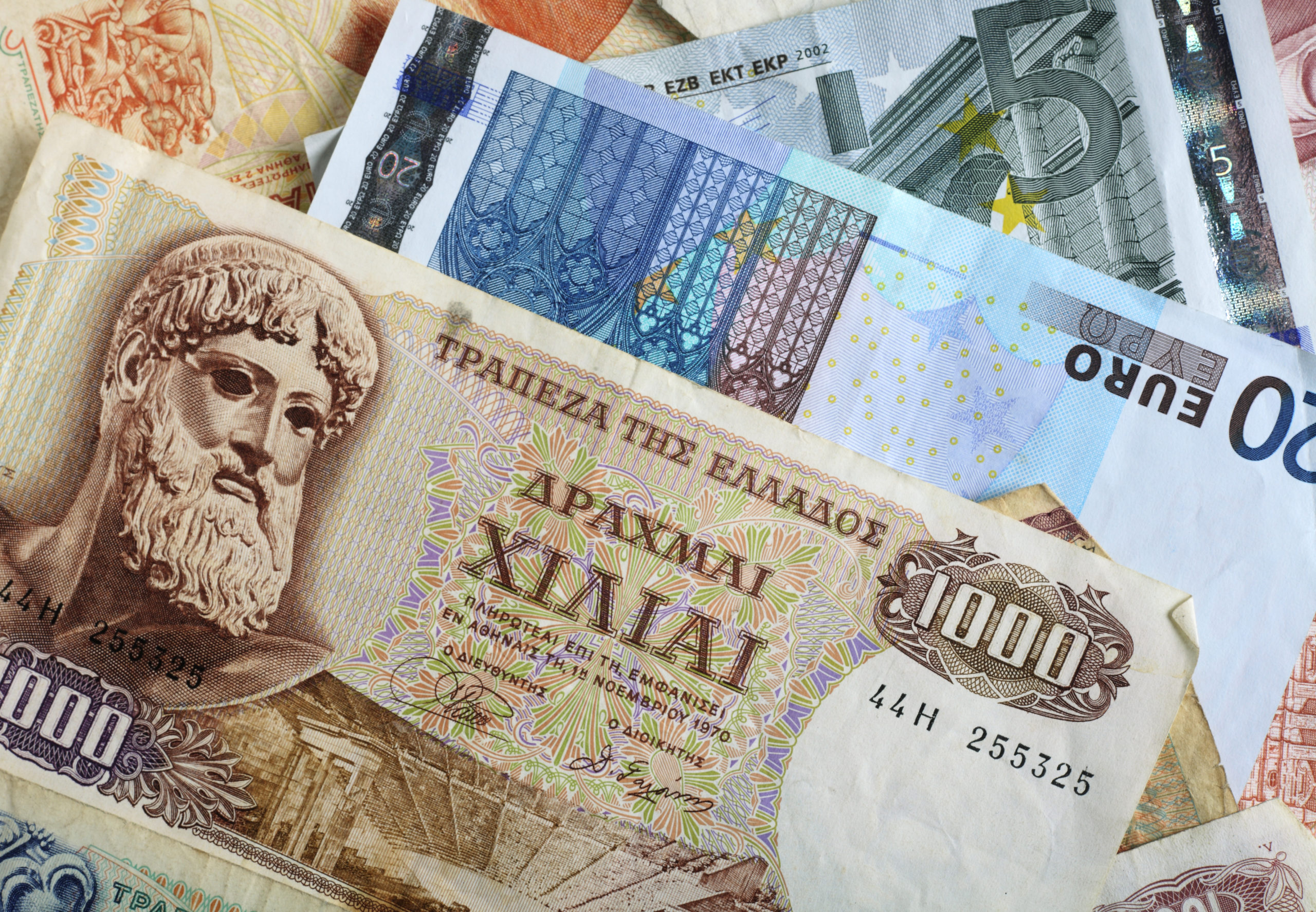At an emergency meeting, today, European finance ministers are in Brussels to discuss Greece.
Where are we going? To some thoughts about switching currencies.
The Euro Launch
It is difficult to create a new currency.
Before selecting “euro,” officials considered the name of a basket of European currencies, the “ecu.” But the Germans resisted because it was similar to “kuh,” German for cow. Euro wound up being least objectionable even though the Greeks said it sounded like their word for urine—”ούρο”. As for currency design, they concluded that only generics were okay like unidentifiable bridges.
Next, the logistics were daunting. Imagine having to deliver, across Europe, 10 billion notes and 52 billion coins. Thousands of vending machines—from soda to chips to cigarettes—needed recalibrating and reloading. The day before the launch, Coca-Cola said that only 46,000 of its 300,000 machines would accept the new currency.
As for the launch on January 1, 2002, most of the 12 eurozone countries said the transition happened without a hitch. The exceptions were Greece, Spain and Italy with the BBC calling Greece the least-prepared country. During the early days of the transition, only 50,000 of 300,000 Greek businesses had been supplied with the new currency.
And now, 13 years later, some people are asking whether Greece will reverse all of this.
The new Greek government has said it does not want to exit the eurozone. However, having promised a 28 percent minimum wage boost by 2016, new jobs for low wage government workers, and a plan for a bridge loan until a new bailout can be negotiated from the EC, ECB and eurozone troika, Greece faces oppostion.
So, we can ask, if it does not work out, what next?
A New Drachma?
Let’s assume for a moment that Greece has to return to a drachma—a “new” drachma. What are some of the issues?
Let’s say you started with a banking holiday to facilitate the switch.
Then, moving from big issues to little ones, first we have the contractual obligations. Loans and mortgages, wage agreements, bonds, all would need to change. Financial institutions would have to “mark to market” the value of their Greek bonds. Worldwide, few would be willing to loan Greece money and creditors (as with Argentina) would try to seize accessible Greek assets. For weaker eurozone economies, borrowing would become ever more challenging.
And this is only the tip of the iceberg.
Other issues would include restructuring international contracts, transitional timetables, and legal implications. Imagine being told that your euro life savings were now new drachmas that were plunging in value as inflation accelerated. On the business end, creditors would refuse Greek drachmas as repayment. It is also possible though that the Greek government can use the printing press to pay debts, pay workers and boost exports and tourism. Repaying a 100 debt with 100 drachmas that have less value, we could say they are inflating away their obligations.
And finally, minor but a consideration, a different currency could mean that wallets might be too small or large. (It happened in Estonia when they adopted the euro.) Would ATMs function? Coca-Cola machines?
Our Bottom Line: Sovereign Debt
The Greek eurozone crisis is all about borrowing too much. According to a new report from McKinsey, many nations continue doing precisely what got Greece into trouble. McKinsey says that no one has made deleveraging progress during the past seven years.
Below you can see that all countries positioned on the far right–Ireland, Singapore, Portugal and Japan–have a high debt to GDP ratio. And, those that are high on the y-axis also have made little progress deleveraging.







